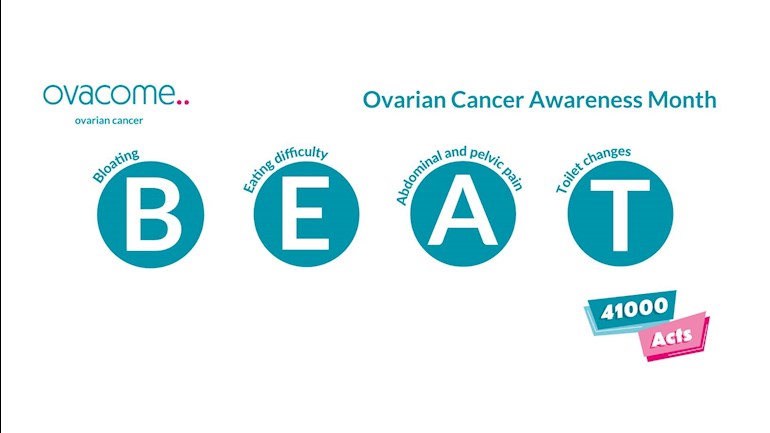Hello All
As March is Ovarian Cancer Awareness Month in the UK, in this month’s Health in Focus posts we’re going to explore some of the approaches to raising awareness of ovarian cancer, in particular the signs and symptoms. Today, we’re looking more closely at Ovacome’s BEAT acronym for the most common symptoms of ovarian cancer, what it means and how it originated.
Here is the BEAT acronym:
B is for bloating that is persistent and doesn’t come and go
E is for eating difficulty and feeling full more quickly
A is for abdominal and pelvic pain you feel most days
T is for toilet changes in urination or bowel habits
Although these are not the only possible symptoms of ovarian cancer, they are those that many health professionals agree are the most common and are used by Ovacome to raise awareness.
The BEAT acronym was developed in 2008. In October 2007 a group of clinicians published a paper in the British Medical Journal confirming that in their medical opinion those four were the most common symptoms of ovarian cancer.
This was a significant change in the landscape of ovarian cancer. Before 2007 the list of possible symptoms was vague, which made it very difficult to give a meaningful message that could alert people about when to seek medical attention. For a long time it was widely thought that there were no early symptoms of ovarian cancer that could help with earlier diagnosis.
Following the publication of the paper in the British Medical Journal, the BEAT campaign was devised. It has been running since 2008 and provides a focus for ovarian cancer symptom awareness. Having a concise and memorable list of the most common symptoms enables the public to educate themselves and empowers people to seek medical advice about ovarian cancer. This in turn helps to diagnose it earlier.
You can order or download BEAT materials from Ovacome free of charge at ovacome.org.uk/b-e-a-t
If you would like to share your experiences of raising awareness of ovarian cancer and the BEAT campaign, please comment on this post. If there is something that we can help with, please contact us on 0800 008 7054 or at support@ovacome.org.uk.
Best wishes
Julia & Anna
Ovacome Support
